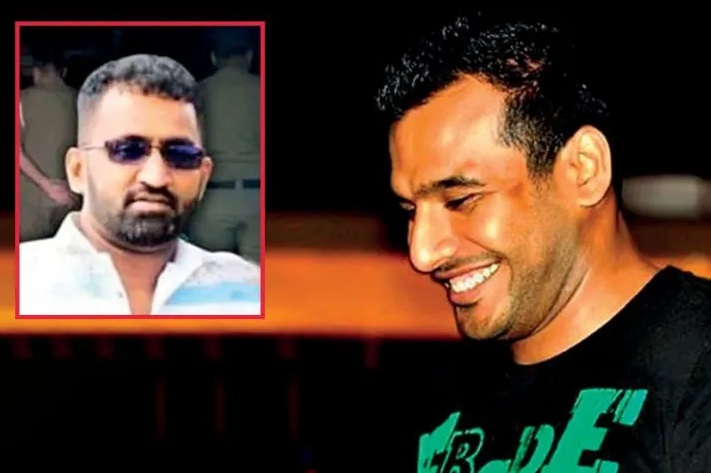-By LeN Special Investigation

(Lanka-e-News - 02.Oct.2025, 11.00 PM) Fresh evidence has surfaced suggesting that Aruna Vidana Gamage, widely known as Kajja, may have been closely monitoring Muslim- Rugby Player -Tajuddin in the months leading up to his assassination in 2012. What adds weight to the claims is the startling revelation that Kajja resided immediately adjacent to property owned by the powerful Rajapaksa family in Weeraketiya, Tangalle a stronghold synonymous with both their political legacy and networks of patronage.
Witness testimony, combined with fragments of intelligence reports that have only now come to light, indicate that Tajuddin was being tailed on several occasions by a man matching Kajja’s description. Associates of Tajuddin recall him privately expressing unease in early 2012, noting that “a familiar face kept turning up at meetings in Hambantota and Colombo.”
Investigators now believe that familiar face may have been Kajja.
The discovery that Kajja lived adjacent to the Rajapaksa family estate in Weeraketiya, Tangalle has raised profound questions. Was this simply coincidence — a man living in proximity to Sri Lanka’s most powerful dynasty — or was Kajja part of a deeper, more orchestrated network of local enforcers tied to political muscle?
Land records reviewed by this newspaper confirm that Kajja’s residence directly bordered Rajapaksa-owned property. Long-time residents of the area recall him as “a quiet figure, always present but never far from political movements.”
Tajuddin’s assassination in 2012 shocked many within Sri Lanka’s sport community. He had been viewed as both a rising figure in Rugby and Socialising circle in the Colombo.. Yet his independence and refusal to align closely with ruling-party networks, and he was dated a girl friend of the Rajapaksha’s one of the Son’s- Girl friend , had earned him quiet hostility in some quarters.
A senior intelligence source, speaking anonymously, described him as “a man marked — not for what he had represented, but for what he done .”
Now, the link to Kajja adds a chilling new layer to an already murky narrative.
While never formally charged in connection with the murder, Kajja’s name has periodically surfaced in underworld dossiers. Police reports from as far back as 2008 described him as “a fixer with political connections.” His reputation, according to local accounts, was that of a man who could arrange things quietly — from land disputes to intimidation campaigns.
The new testimony places him physically near Tajuddin in the hours before the killing, making the overlap of circumstances difficult to ignore.
The Rajapaksa family’s proximity to Kajja’s residence inevitably fuels speculation. Did his presence next to their land provide cover, protection, or tacit endorsement for his activities? Or was Kajja merely an opportunist, using his neighbourhood association to cultivate an aura of untouchability?
Opposition figures argue the latter explanation strains credulity. “In that climate, no one lived next to the Rajapaksas without some kind of understanding,” one senior political analyst told this paper.
Human rights groups and community leaders are now urging a fresh inquiry into Tajuddin’s assassination, citing this new evidence. They argue that successive governments failed to pursue lines of investigation that may have implicated figures with political protection.
A spokesperson for the Centre for Justice and Accountability said:
“This is not simply about one murder. It is about whether the rule of law was deliberately suspended to protect individuals close to power. Kajja’s role must be examined fully, including his ties to the Rajapaksa land network in Weeraketiya, Tangalle.”
More than a decade after Tajuddin’s killing, the case continues to reverberate. The emergence of Kajja’s shadowy movements in 2012 — and his unusual proximity to one of Sri Lanka’s most powerful families — ensures the story will not fade quietly.
For Tajuddin’s family, the new evidence offers both vindication and renewed anguish. “He always said someone was watching him,” a close relative recalled. “Now we know he was right.”
By LeN Special Investigation
---------------------------
by (2025-10-02 19:14:04)
Leave a Reply